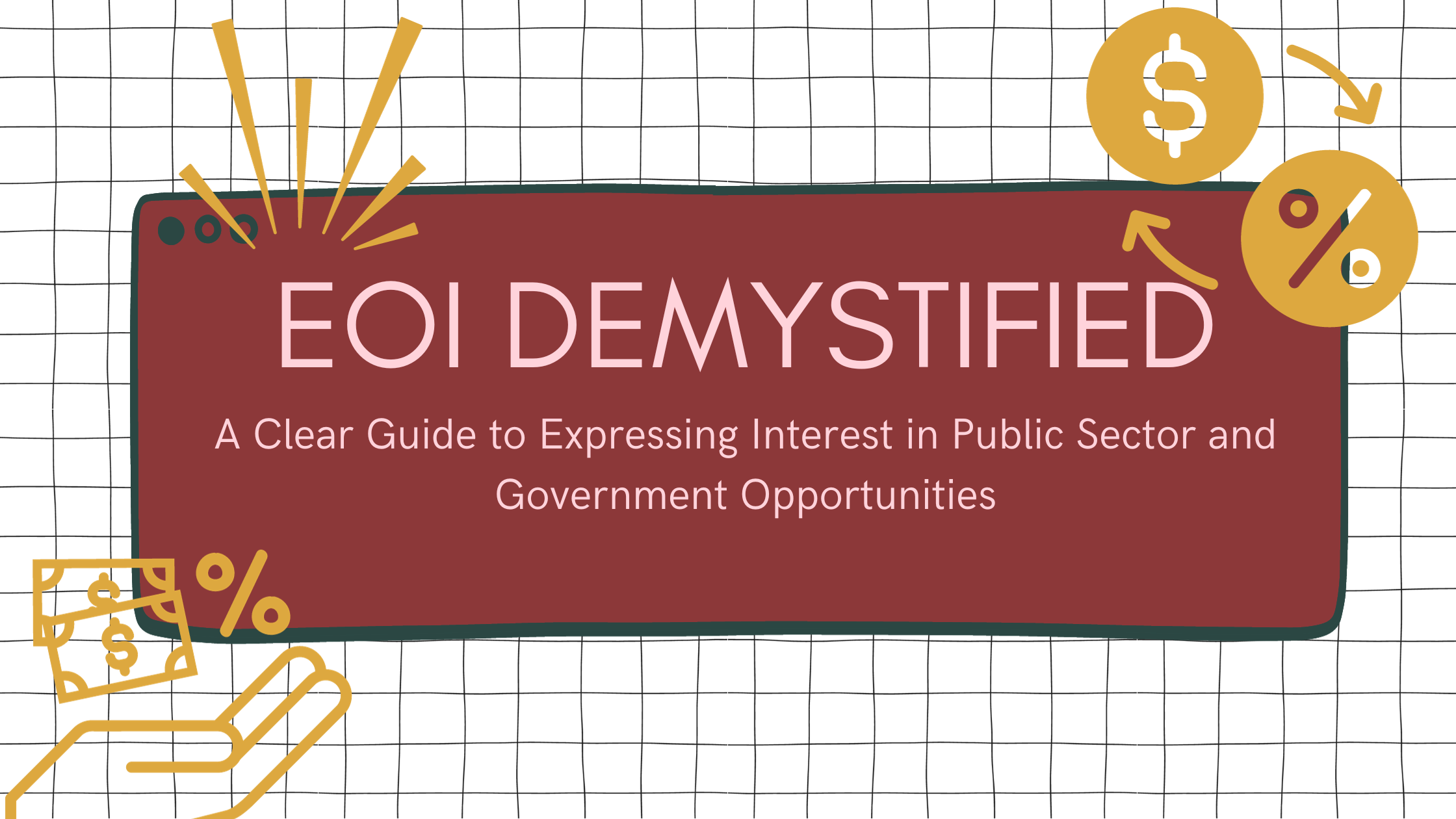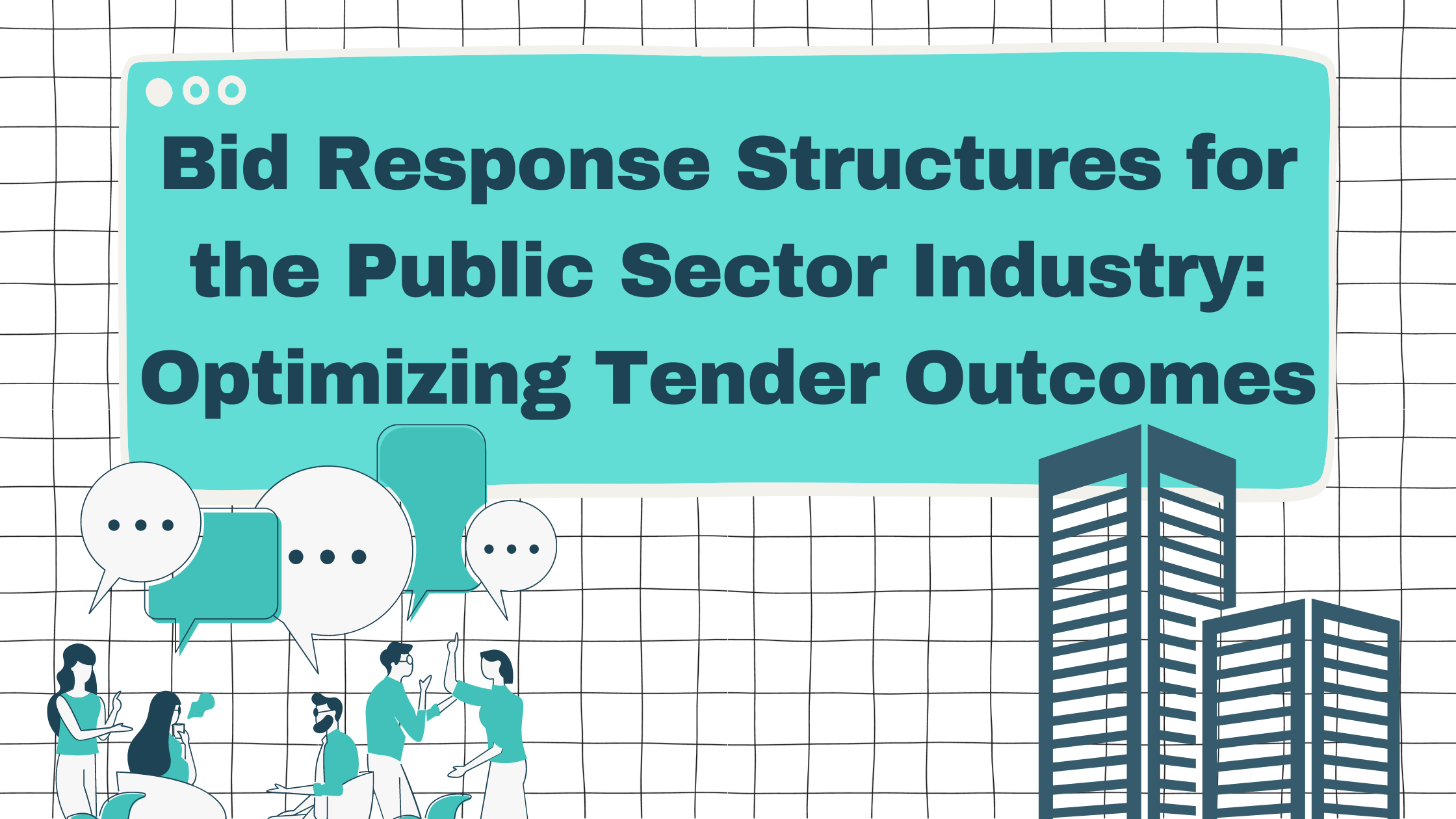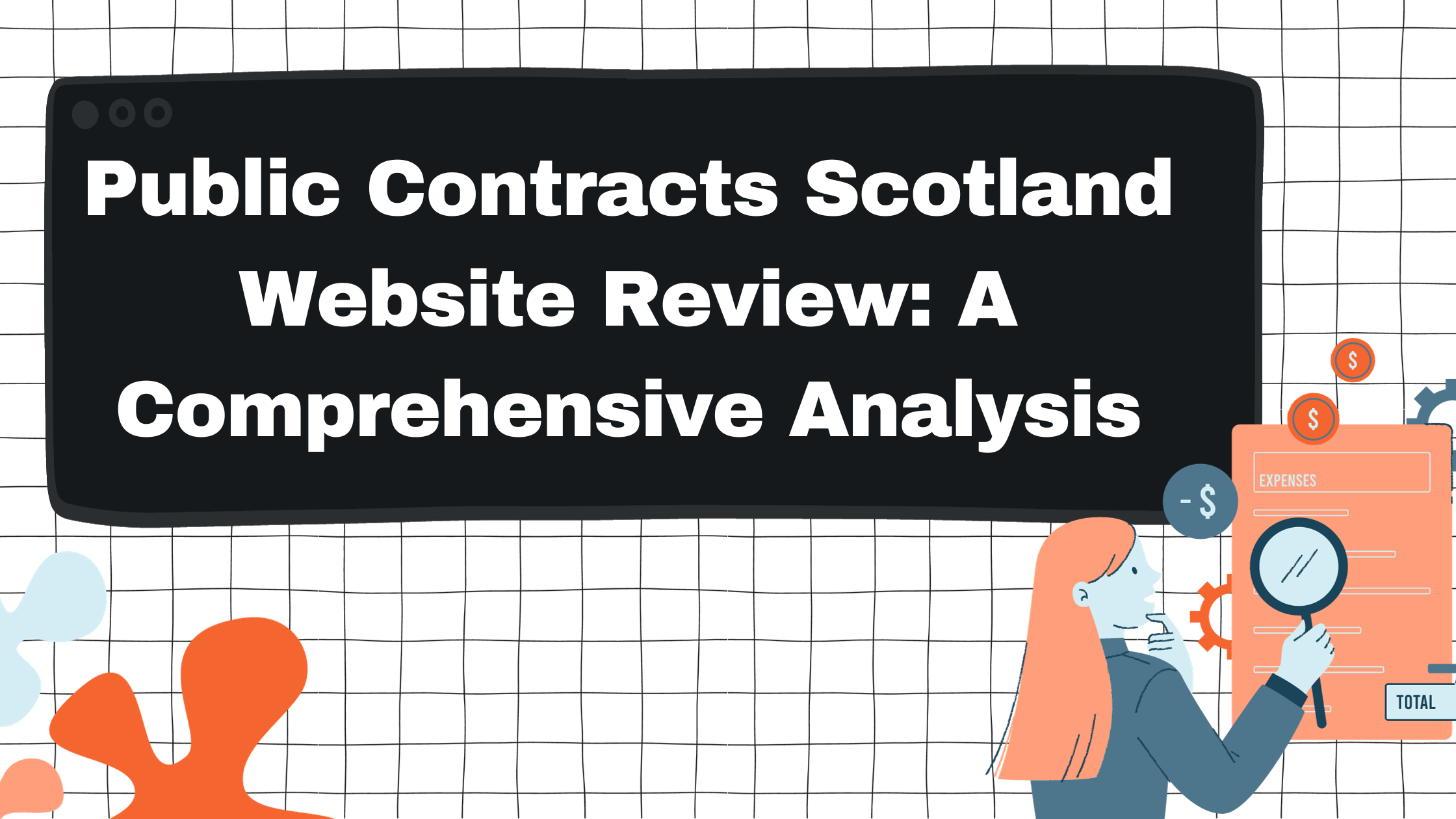Master RFP and Proposal Writing Services: Crafting Winning Responses for Every Bid

Need Help with Your Bid?
Get in touch by filling out the form and one of our advisors will be in contact.
Contact UsProposal Writing Course: Master the Art of Crafting Winning Proposals
Understanding the art of proposal writing is essential for securing funding, winning contracts, and advancing business objectives. Proposal writing courses provide structured training that equips individuals with the necessary skills to craft compelling proposals that stand out. These courses often cover a range of topics from the basics of design and writing to the more technical aspects, offering a comprehensive approach to mastering this critical skill.

Participants in a proposal writing course can expect to learn how to structure their documents effectively, employ persuasive language, and address all components of a proposal request. Special attention is often given to winning strategies and techniques that have been proven to capture the attention of decision-makers. Additionally, such courses may offer insights into professional growth and accreditation, helping participants not only to write better proposals but also to advance their careers through improved proficiency and certification.
Key Takeaways
- Proposal writing courses enhance one’s ability to create impactful documents.
- They provide a mix of fundamental techniques and advanced strategic insight.
- Completion of these courses contributes to professional development and credentialing.
Understanding Proposal Writing
Proposal writing is an essential skill for securing funding, contracts, or resources. It involves creating a document that offers a structured and persuasive argument for the execution of a particular initiative or project.
Defining Proposal Writing
Proposal writing is the process by which individuals or organizations formalize their request for resources, permission, or support to undertake an activity. Businesses and government entities often require proposal documents to understand the viability, impact, and cost of a proposed effort. These proposals range from project proposals that outline the scope, timeline, and budget of a project, to research or policy proposals. The key purpose is to persuade the reader that the proposing party is capable and has a well-thought-out plan for the task.
Types of Proposals
There are primarily two types of proposals an entity might encounter or need to produce: solicited and unsolicited. Solicited proposals are crafted in response to Requests for Proposals (RFPs), which are formal invitations from businesses or government agencies looking to purchase services or fund projects. In contrast, unsolicited proposals are not in direct response to an RFP but are submitted on the initiative of the proposer, who has identified a problem and has a potential solution to offer.
- Solicited Proposals:
- Often have strict guidelines
- Must align with the goals of the issuer
- Competition-driven, requiring unique value propositions
- Unsolicited Proposals:
- Require a clear identification of need and benefit
- Must capture the potential client's interest
- Leverage the element of initiative and innovation
Through effective proposal writing, potential candidates demonstrate their understanding of the project requirements, their ability to meet those requirements, and the value they bring to the table. It is a critical skill for anyone looking to establish a successful partnership or secure funding within both the business and government sectors.
Course Structure and Content
The course structure for proposal writing is meticulously designed to offer a clear roadmap from beginner to advanced concepts. It lays a solid foundation in crafting compelling proposals that align with organizational goals and client needs.
Course Outline
- Module 1: Introduction to Proposal Writing
- Module 2: Types and Structures of Proposals
- Module 3: Preparing an Outline and Finding Facts
- Module 4: Writing Skills Development
- Module 5: The Drafting and Revision Process
- Module 6: Finalizing the Proposal Document
- Module 7: Submission and Follow-up Practices
These modules follow a sequential format, ensuring a smooth progression of learning material.
Learning Objectives
- To understand the fundamental principles of proposal writing.
- To develop the skills necessary to articulate a clear vision and aims in a proposal.
- To produce CPD-accredited proposals that meet industry standards and can lead to tangible benefits for all stakeholders involved.
Each objective is carefully integrated into the course content, making it relevant and practical.
Key Features and Benefits
- Self-paced Learning: One can progress through the course content at their own pace, allowing for a flexible learning schedule.
- Accreditation: Courses often come with CPD accreditation, adding formal recognition of the learned skills.
- Interactive Materials: Many online training courses include interactive exercises, enhancing engagement and retention.
- CPD Hours: Completion of the course adds CPD hours to one's professional development record, showcasing commitment to lifelong learning.
- Support Resources: Access to various resources such as templates, case studies, and expert advice is provided to enrich the learning experience.
The course’s feature set is designed to deliver a rounded educational experience that equips learners with key skills and recognized qualifications.
Proposal Writing Skills Development
Developing key proposal writing skills is essential for those looking to enhance their ability to craft compelling proposals. This includes honing one's writing capabilities, utilizing storytelling to connect with the reader, and incorporating graphics and visuals for greater impact.
Improving Writing Skills
Successful proposal writing is grounded in clear, concise, and persuasive writing. It involves regular practice and a solid understanding of grammar and style. Effective writing also includes the skill of proofreading and editing to ensure error-free content. Courses offered by Coursera focus on these aspects, aiming to fit various experience levels to bring about improvement in writing proposals.
Storytelling Techniques
Storytelling in proposals helps to create a narrative that engages potential clients and funders. It's not just about listing facts, but about weaving them into a compelling story that illustrates the problem and the proposed solution's impact. The Proposal Lab, through its training, emphasizes this element, teaching how to structure proposals that demonstrate value and resonate with the audience.
Graphics and Visuals
The strategic use of graphics and visuals can significantly enhance the appeal of a proposal. Effective visuals represent complex data in a digestible format and can make arguments more persuasive. As the online training course from CPDUK Accredited indicates, mastering the inclusion of graphics helps in creating professional and eye-catching proposals that stand out in a competitive environment.
Technical Aspects of Proposal Writing
In proposal writing, mastering technical aspects is crucial. They ensure clarity, coherence, and professionalism, which can greatly influence the proposal's success.
Structure and Formatting Guidelines
A well-structured proposal follows a clear and logical progression of ideas. Below is an example of a standard structure:
- Executive Summary: A concise overview of the proposal's intent.
- Technical Background: Sets context for the opportunity or situation at hand.
- Technical Approach: Outlines methods, resources, and costs.
- Personnel and Equipment: Details staff qualifications and equipment requisites.
- Anticipated Benefits: Describes potential gains from the proposal's implementation.
- Conclusion: Summarizes the proposal and its expected impact.
- References and Sources: Cites all referenced materials.
- Appendices: Includes supplementary or detailed information.
Formatting guidelines emphasize consistency and readability, covering font styles, headings, subheadings, bullet points, and other typographic elements. Using tables for costs, timelines, or comparison can improve readability and provide immediate clarity.
The Importance of Proofreading and Editing
Proofreading and editing are vital for refining the content and form of a proposal. Proofreading focuses on detecting grammar, punctuation, spelling, and typographical errors, while editing involves a deeper review for coherence, tone, style, and argument strength.
It is recommended to perform multiple rounds of checking to ensure that each proposal is error-free and polished. One can consider professional editing services or software tools, but it is crucial for the writer or their team to also be involved in this process to maintain the proposal's original voice and intent.
Winning Strategies and Techniques

In the realm of proposal writing, employing targeted strategies and mastering the art of persuasion are critical components that hinge on a deep understanding of the intended audience. To maximize win rates, each proposal should be meticulously tailored to the sector it addresses, providing a competitive edge in the sales process.
Developing a Persuasive Argument
Crafting a persuasive argument within a proposal hinges on presenting a compelling case that aligns with the client's needs and showcases the unique value proposition. They should:
- Identify the core problem or opportunity the client is facing.
- Offer a clear solution that highlights benefits over features.
- Provide evidence such as case studies or statistics to substantiate claims.
- Use an emotional appeal to connect with the client on a personal level.
Understanding the Audience
To strategize effectively, one must possess an in-depth understanding of the audience, which includes:
- Knowing the decision-makers and their priorities.
- Anticipating potential objections and preparing counters in advance.
- Recognizing the company culture that could influence decision-making.
Utilizing this understanding directly affects the proposal’s ability to win business.
Tailoring Proposals to Different Sectors
Adapting proposals to different sectors is not about altering core offerings, but about emphasizing the aspects that resonate most with a specific sector:
Public Sector:
- Compliance with regulatory requirements.
- Focus on cost-effectiveness and public benefit.
Private Sector:
- Alignment with the company's bottom line and ROI.
- Emphasis on innovation and competitive advantage.
For every sector, addressing the specifics of the RFP and demonstrating a clear understanding of the sector’s unique challenges is crucial for success.
Professional Growth and Accreditation
Professionals in the realm of proposal management can attain significant personal and professional growth by engaging in specialized training courses. Such courses offer the opportunity to refine critical skills like effective communication, leadership, and project management. In pursuit of accreditation, one can turn to organizations like the Association of Proposal Management Professionals (APMP), which provide certifications tailored to varying levels of experience.
The accreditation path typically starts with a foundation-level certification designed for those with up to three years of experience. This certification underscores the importance of mastery in the basics of proposal writing.
Beyond the foundation level, individuals with three to seven years of experience can pursue a Bid/Proposal Practitioner Certification. This certification indicates a thorough understanding of best practices in proposal management and the ability to guide others in their application.
For seasoned professionals, the Bid/Proposal Professional Certification is the pinnacle, attesting to their expanded expertise and emphatic grasp on leadership in complex bid and proposal environments.
Certification LevelExperience RequiredFocus AreaFoundation0-3 yearsProposal Writing BasicsPractitioner3-7 yearsApplication of Best PracticesProfessional7+ yearsAdvanced Leadership & Management
Accompanying many proposal writing courses are CPD certificates, which provide validation for an individual’s dedication to continual professional development. Such certifications not only bolster a resume but also assure potential employers of the candidate's commitment to maintaining high standards of professional aptitude and efficacy.
Through these structured educational tracks, professionals in the proposal industry can ensure they are adepts in their field, capable of adapting to change and leading their teams towards success.
Frequently Asked Questions

In this section, readers will find answers to common questions about proposal writing. The information is geared towards both beginners and professionals looking to refine their skills in this critical aspect of business and project management.
How can I learn proposal writing online for free?
Individuals can access introductory courses on platforms like Coursera, which sometimes offer free courses on proposal writing. These can provide a solid foundation without any financial commitment.
What are the essential components of an effective proposal?
An effective proposal should clearly outline the problem, proposed solution, and the expected outcomes. It must also include a detailed budget, a timeline, and qualifications that demonstrate the proposer's ability to deliver results.
What certification programs are available for becoming a skilled proposal writer?
Several organizations offer certification programs to become a skilled proposal writer. For example, the Association of Proposal Management Professionals (APMP) provides a recognized certification program for professionals at various experience levels.
Which online courses are recommended for learning business proposal writing skills?
Udemy offers various courses for learning business proposal writing skills, one of which is the Successful Proposal Writing Training Course For All Careers, designed to cater to professionals in different career paths.
Can you suggest any resources for mastering grant proposal writing?
Candid Learning's Proposal Writing Boot Camp is a comprehensive resource for mastering the art of grant proposal writing, providing practical experience and feedback.
What training materials are most beneficial for writing an NGO funding proposal?
For individuals seeking to write funding proposals for NGOs, CPDUK Accredited courses, such as the Proposal Writing - Online Training Course, offer detailed modules that cover the entire process from start to finish.
Ready to start your search?
Get in touch by filling out the form to the right and one of our advisors will curate a personalised selection for you.
Get in touchBlogs. Guides. Helpful advice.

Mastering Proposal and RFP Writing for Government and Public Sector Opportunities

Proposal and RFP Writing Services: Enhancing Public Sector Tender Outcomes

.svg)